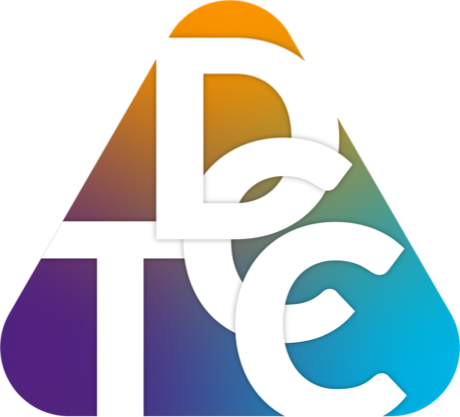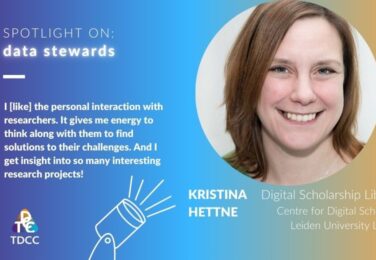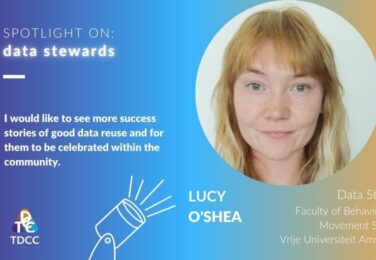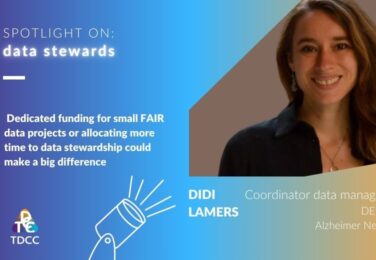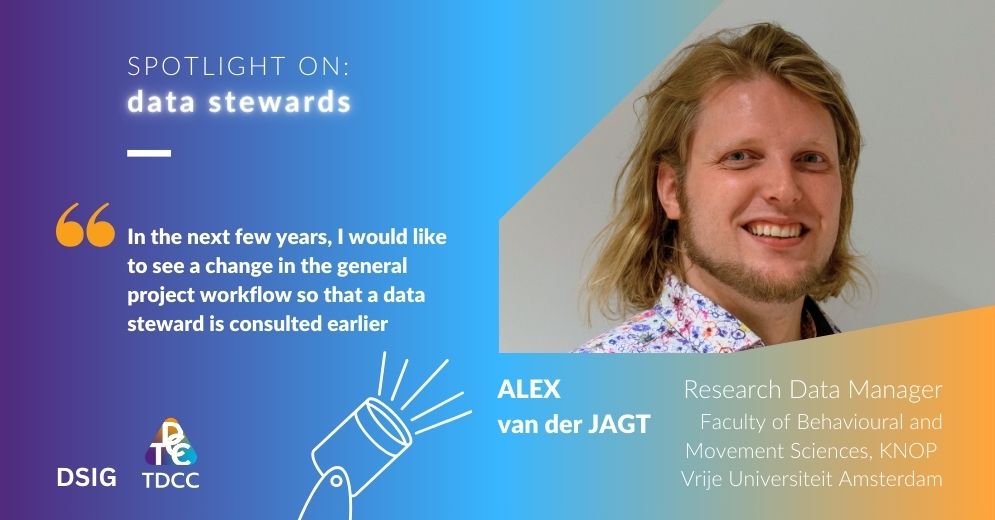
Spotlight on: Alex van der Jagt
Every other week, the Thematic DCCs and the Data Steward Interest Group (DSIG) put the spotlight on one research data steward working in the Netherlands, to stimulate knowledge exchange and peer-to-peer learning.
What drew you towards the research data management field?
I used to do project coordination and data management was added as an extra task. It involved very hands-on engagement and consisted of data cleaning, processing, and issuing. Here I noticed a lot of things were still done by hand and there were no or few tools available to assist in these processes. This pushed me to investigate and get invested in more centrally organized data management organs within my institution (VU Amsterdam). Within a few years, I was able to drop project coordination entirely and carve a place within my section where I could fully focus on data management (or stewardship).
What is an activity/task of your role that you find yourself looking forward to?
There is still an appeal for me to clean data. This is therapeutic in a way. However, recently I find myself also looking forward to network meetings within the institution where we can share and exchange experiences within our faculties/departments. We have a fun team!
What is something unexpected that you can offer help with, if a colleague reaches out to you?
The majority of researchers expect me to be quite far away from the data and mostly advise on data management on a grand scale (be it via data management plans, GDPR compliance or Data protection impact assessments). However, I am somewhat of an SPSS wizard and I can write quite complex and useful syntaxes. Furthermore, a small part of my role (20%, or 0.2 fte) is dedicated to working for IT for research within VU, and I can code scripts, cognitive tasks, and even have a little bit of experience with embedded systems.
What do you think your community of research data professionals is missing?
There is work to be done on visibility and recognition. We work on the back end, but it often happens that researchers do not know how to find me or what I can mean to them. Furthermore, it is a battle to get proper recognition for the work we do. Currently, I am still in the UFO profile of research and education support staff, which does not suit my work at all. The requirements to grow within this profile conflict with the work I do. The Data Steward UFO profile does not work in its current state, as it is very much focused on policy. This can be a part of the profile, but should not be the leading requirement for it at all.
What is a topic you would want to collaborate on with others?
Creating new and user-friendly tools for researchers. Specifically, a nationwide tool for anonymisation, with the user in mind. This tool should support a wide variety of formats (none do at the time of writing and to my knowledge. We need something that can work with spss files for example) and which has a plethora of options available. Amnesia perhaps comes close. Other tools that might be expanded upon are tools which help the RDM process such as DMPonline. A similar tool could be created for other relevant documents such as Data protection impact assessments (DPIAs), Data transfer agreements (DTAs) and Data processing agreements (DPAs).
How would you like to see your current field of work evolve in the next 5 years?
In a previous answer, I already mentioned the issue with recognition and visibility. To further elaborate on this, I believe a data steward at the section/department/faculty level should be consulted earlier. In the next few years, I would like to see a change in the general project workflow so that a data steward is consulted earlier, allowing any pitfalls to be caught early on as well. In current practices, RDM is often nearly completely inadequate. To give a concrete example: I encountered a researcher who wanted to gather fMRI data. This results in big datasets, but no budget was reserved for the storage and archiving of this data. If a data steward had been involved early enough, this would have been spotted in time.
Get in touch with Alex: Vrije Universiteit Amsterdam staff profile | Linkedin profile
Do you want to read other interviews published in the Spotlight on series? Visit the series' page.
Are you a data steward or data professional who wants to be featured in one of the future editions? Fill out this form.
